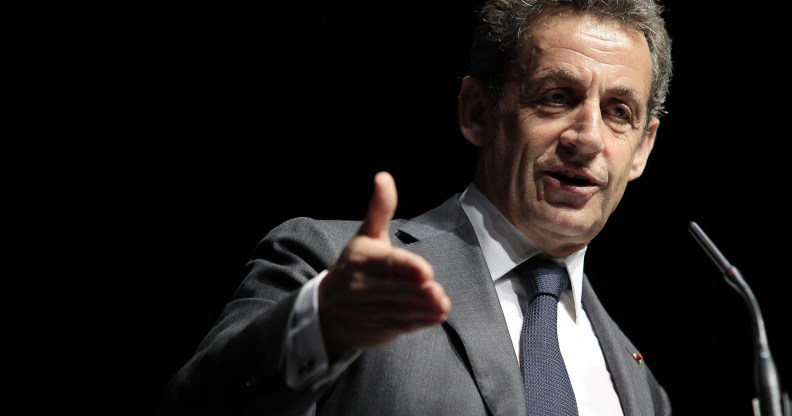Gay marriage off the agenda as Sarkozy triumphs

LGBT activists were coming to terms with the defeat of Segolene Royal in Sunday’s final election for the President of France.
Nicolas Sarkozy won a solid 53% of the vote on Sunday to Ms Royal’s to 47%. There was another huge turnout of 85%.
The victory of right-wing Mr Sarkozy means that the chances of gay marriage becoming legal in France are greatly reduced.
The President-elect has spoken out against gay marriage throughout the campaign.
His victory was greeted with sporadic street violence.
He is expected to try to radically reform French industrial and business practice as well as cut taxes in an attempt to jump-start the stagnant French economy.
“France has given me everything, and now it is my turn to give back to France what France has given me,” Mr Sarkozy said.
His Socialist opponent Segolene Royal supports opening up marriage to same-sex couples.
During the campaign Mr Sarkozy made some positive references to gay rights, though in February he reiterated his opposition to gay marriage.
He has promised new adoption rights for gay couples and improved financial arrangements.
Speaking to La Liberation newspaper last month Mr Sarkozy, who was until March the French Interior Minister, said the Roman Catholic church’s position on gays was shocking.
“I was born heterosexual. I have never questioned myself about the choice of my sexuality.
“That is why the church’s position, which consists of saying “Homosexuality is a sin,” is shocking,” he told the newspaper.
“One doesn’t choose one’s identity. One has the identity that one has.”
Mr Sarkozy also shared his opinions on the nature of sexuality:
“Not everything depends on nurture, but that part could be nature. In what proportion? I am not a scientist.
“For example, when I was a child I was shocked because people explained to me, when a child was homosexual: “His mother was wrong, she slept with him.”
“When a child was anorexic, people said: “The father was absent.”
“When a child was autistic, people said: “Oh! The parents got divorced, that caused a shock.” Since then we know that autism is genetic. I think that sexuality also is an identity.”
A 2006 Ipsos survey shows that 62% of French voters support gay marriage, while 37% were opposed.
When asked whether same-sex couples should be allowed to adopt children, the survey found more people to be in opposition (55%) than in support (44%).
French same-sex couples who enter into Civil Solidarity Pacts already enjoy many of the rights that heterosexual married couples have, although couples are not able to adopt or have artificial insemination.
Discrimination against gay men and women has been illegal in France since 1985.
In March the Court of Cassation, France’s highest appeals court, ruled that the marriage of two men was unlawful and should be annulled.
Stephane Charpin and Bertrang Charpentier were married in Begles, a small town in Bordeaux, in 2004.
They are the only same-sex couple in France to have married, rather than undertaken a Civil Solidarity Pact.
The government announced in 2004 that their union was illegal.
After the initial ruling, the couple took their case to the appeals court in Bordeaux, who asserted that “under French law, marriage is a union between a man and a woman.”
That decision was verified by the Court of Cassation.

